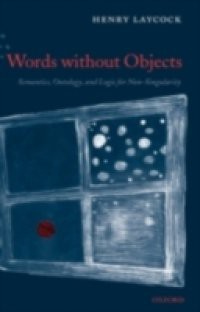A picture of the world as chiefly one of discrete objects, distributed in space and time, has sometimes seemed compelling. It is however one of two main targets of Henry Laycock's book; for it is seriously incomplete. The picture, he argues, leaves no space for stuff like air and water. With discrete objects, we may always ask 'how many?', but with stuff the question has to be 'how much?' Within philosophy, stuff of certain basic kinds is central to the ancientpre-Socratic world-view; but it also constitutes the field of modern chemistry and is a major factor in ecology. Philosophers these days, in general, are unlikely to deny that stuff exists. But they are very likely to deny that it is ('ultimately') to be contrasted with things, and it is on this account that logic and semantics figure largely in the framework of the book. Elementary logic is a logic which takes values for its variables; and these values are precisely distinct individuals or things. Existence is then symbolized in just such terms; and this, it is proposed, creates a pressure for 'reducing'stuff to things. Non-singular expressions, which include words for stuff, 'mass' nouns, and also plural nouns, are 'explicated' as semantically singular. Here then is the second target of the book. The posit that both mass and plural nouns name special categories of objects (set-theoretical 'collections' of objects in the one case, mereological 'parcels' or 'portions' of stuff in the other) represents, so Laycock urges, the imposition of an alien logic upon both the many and the much.

